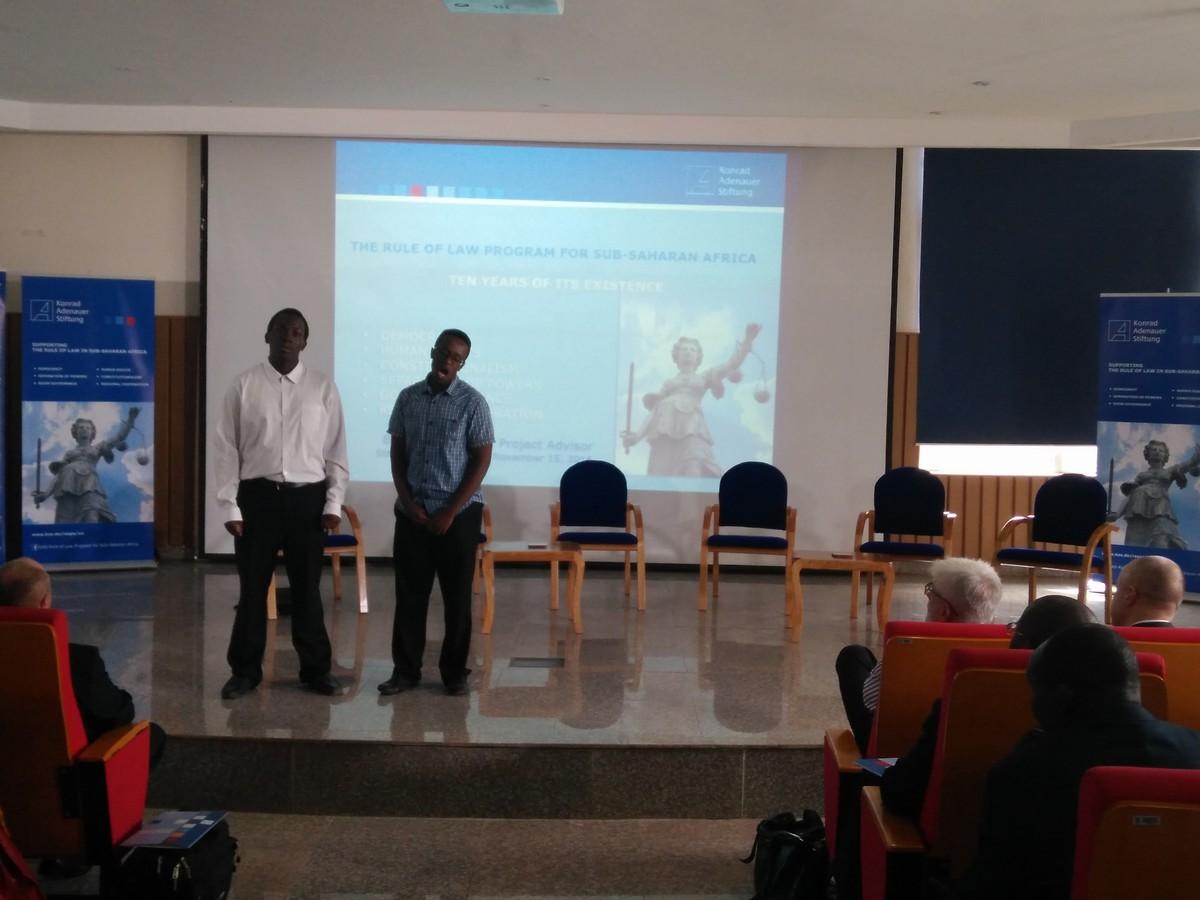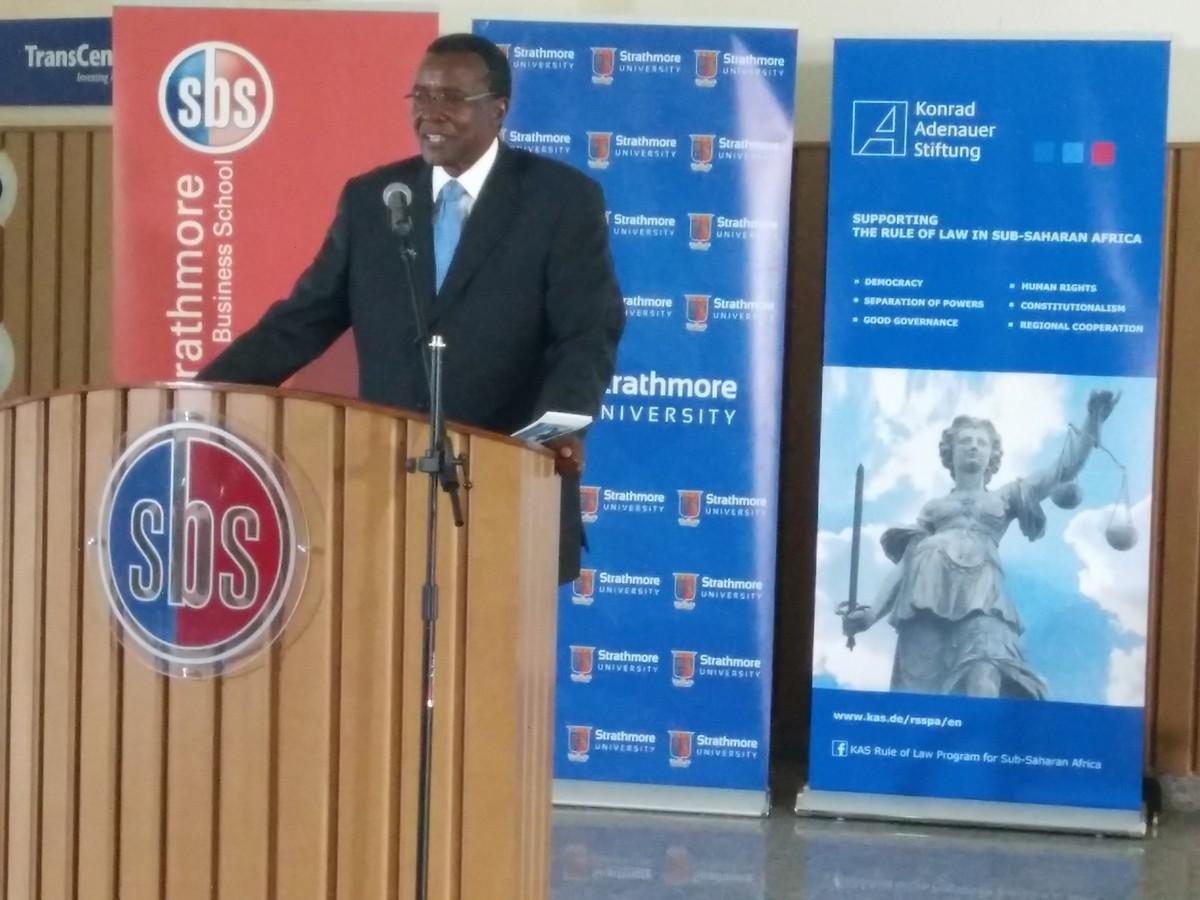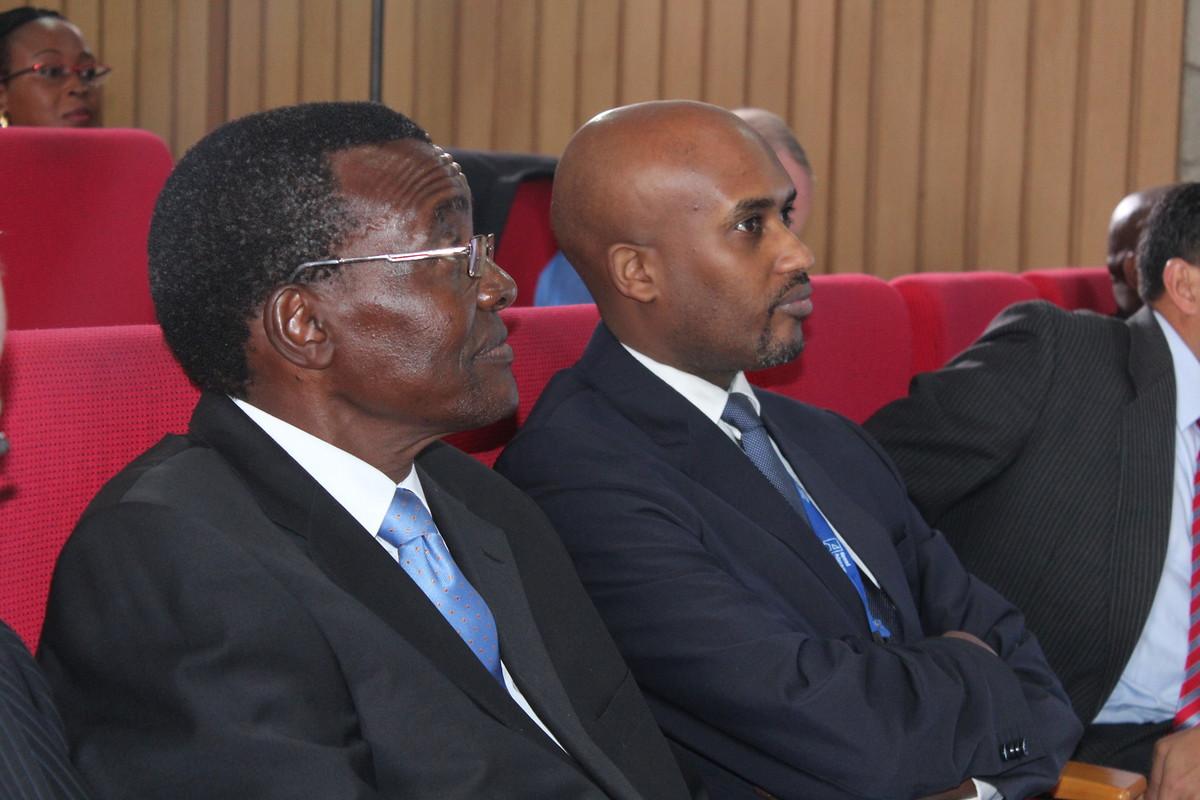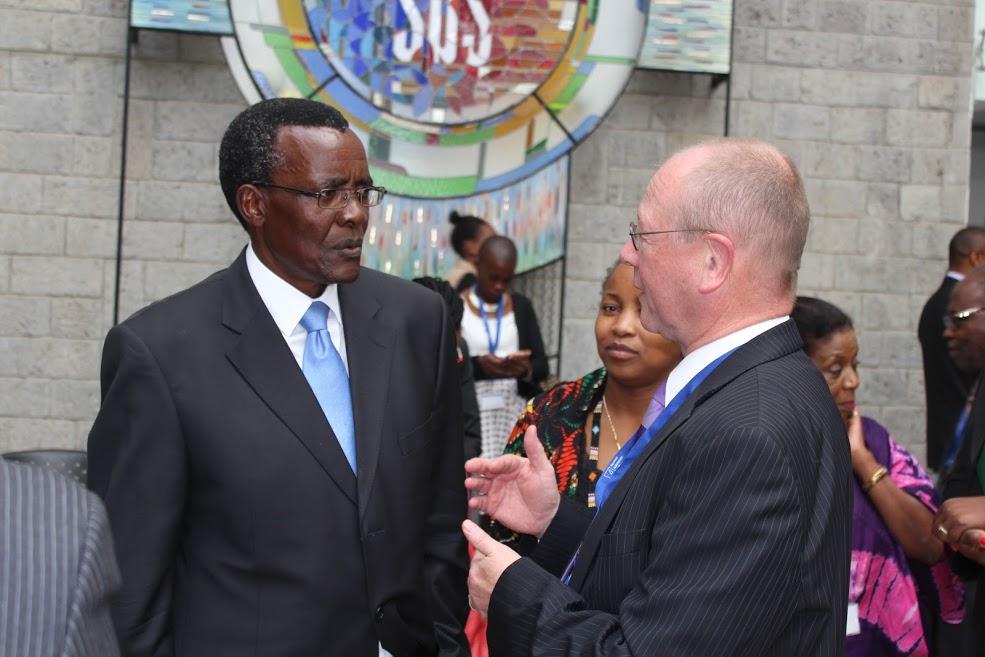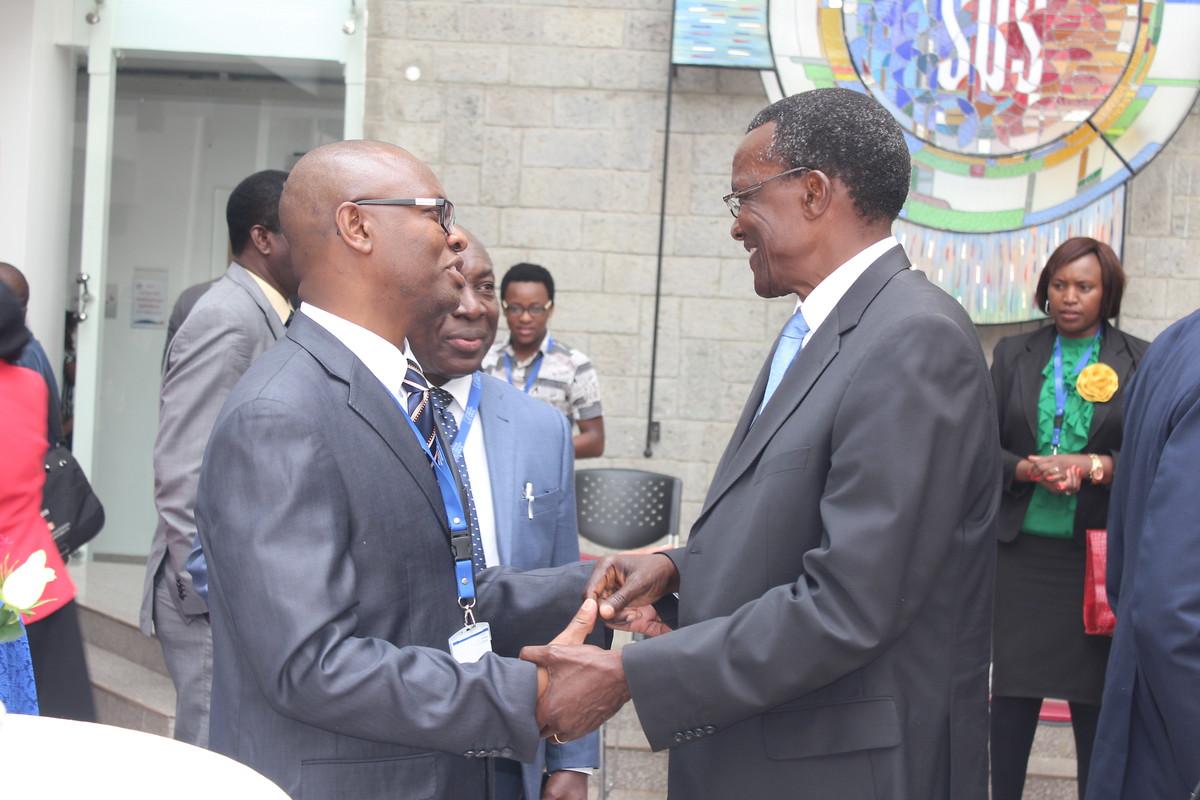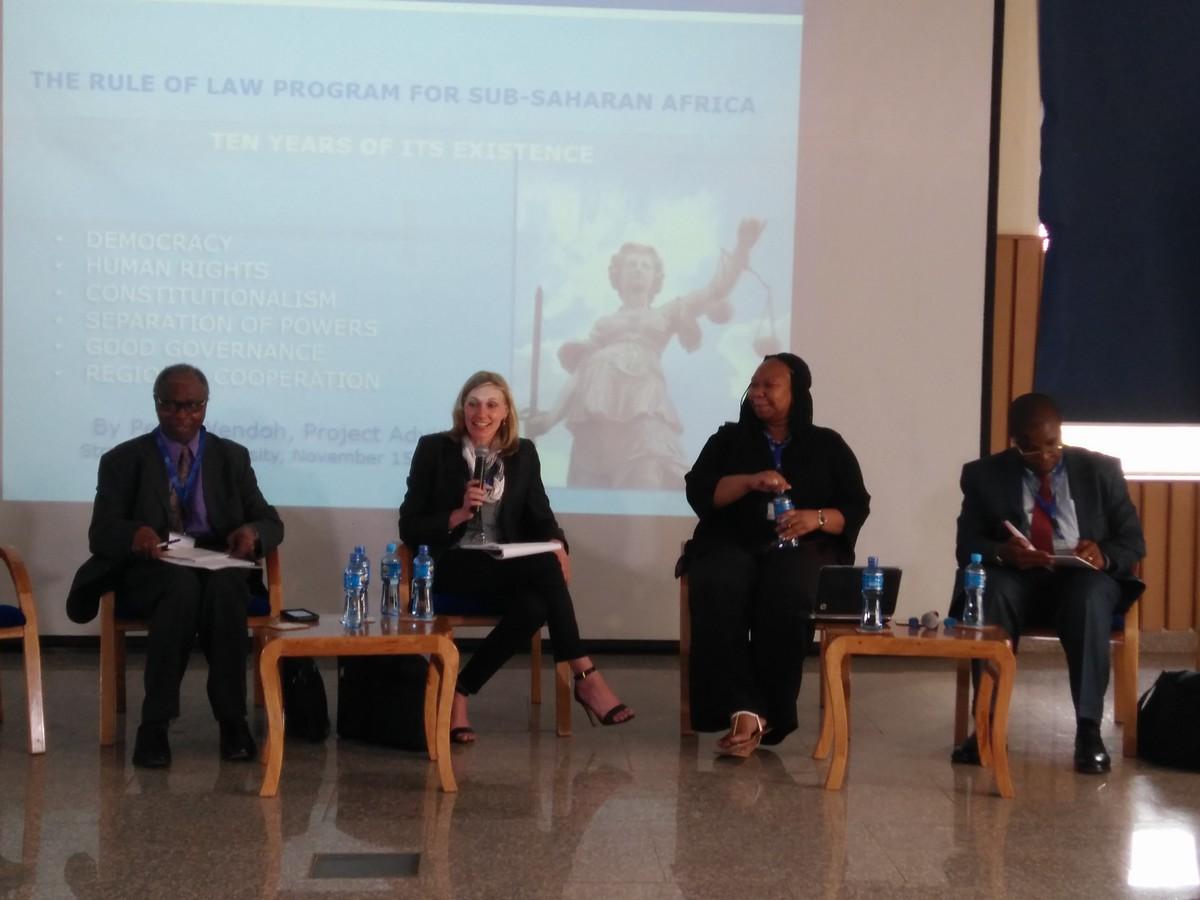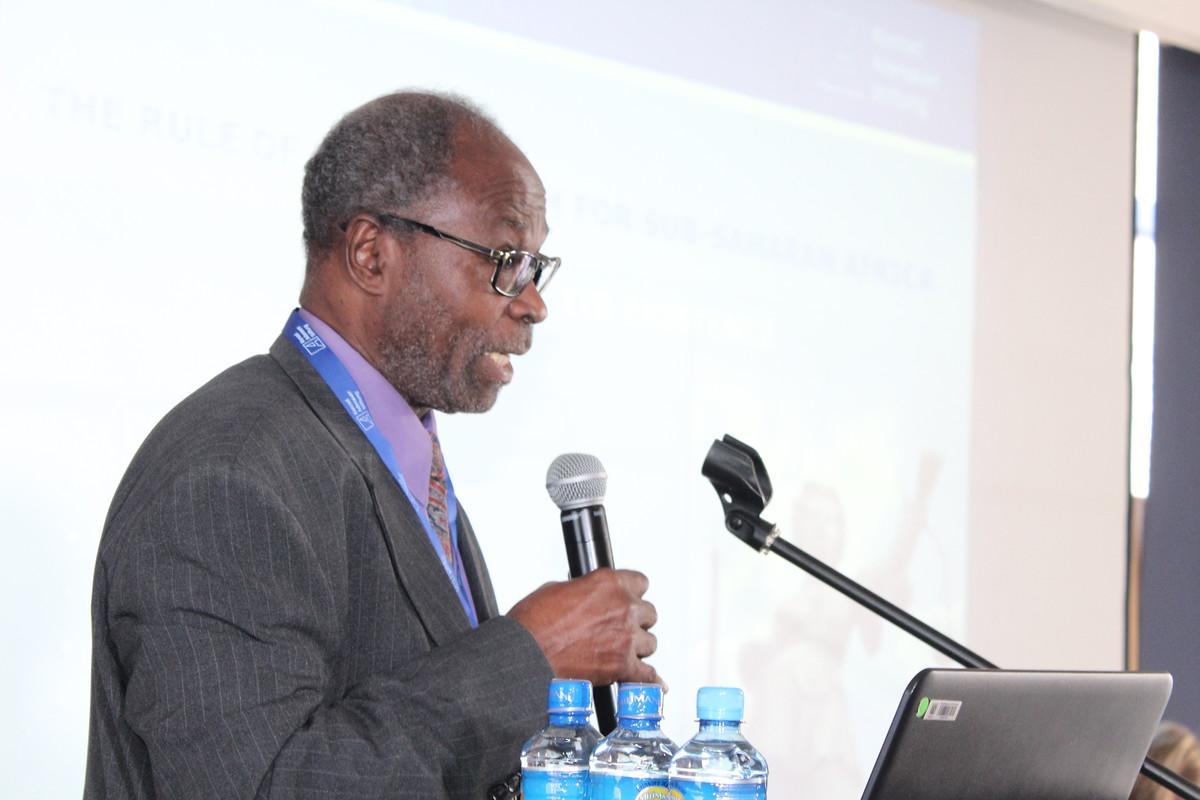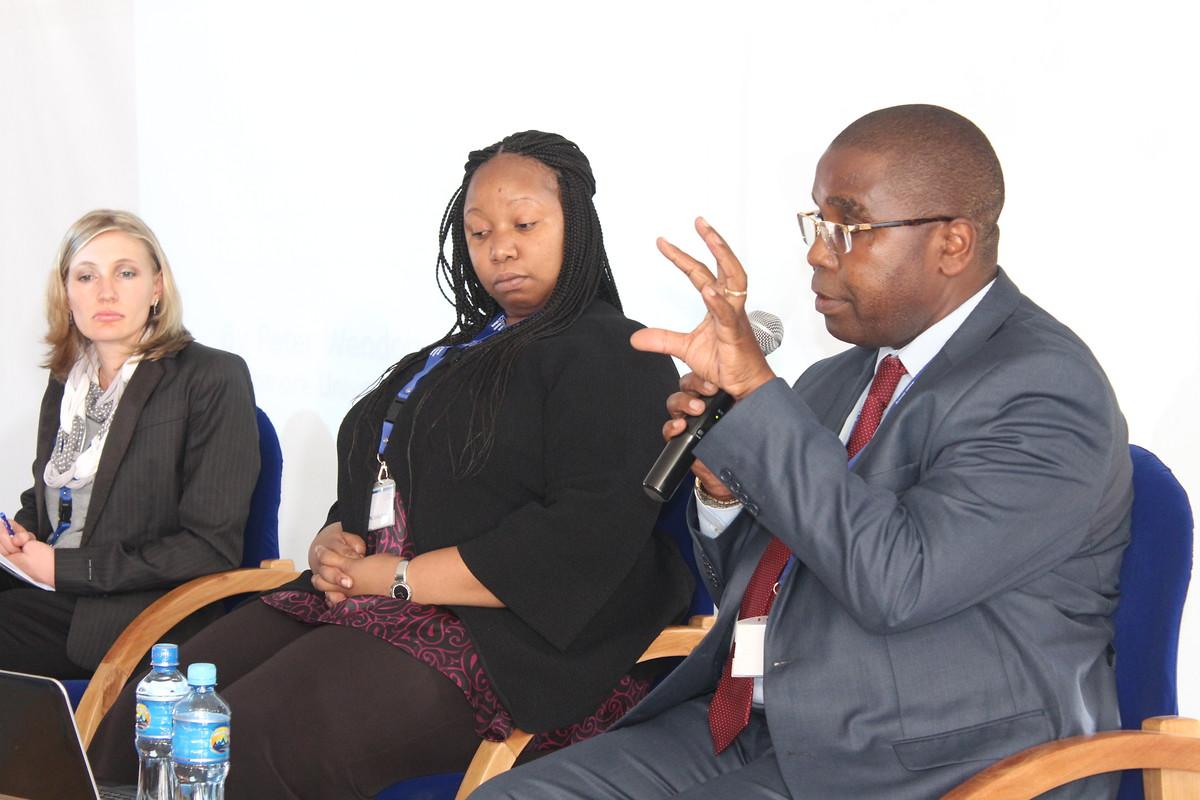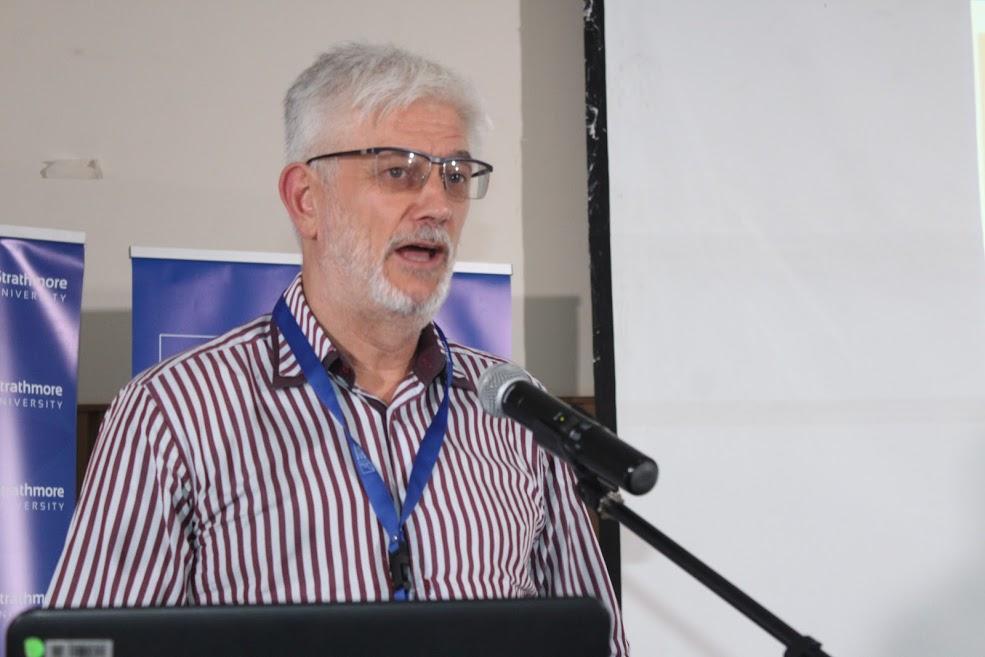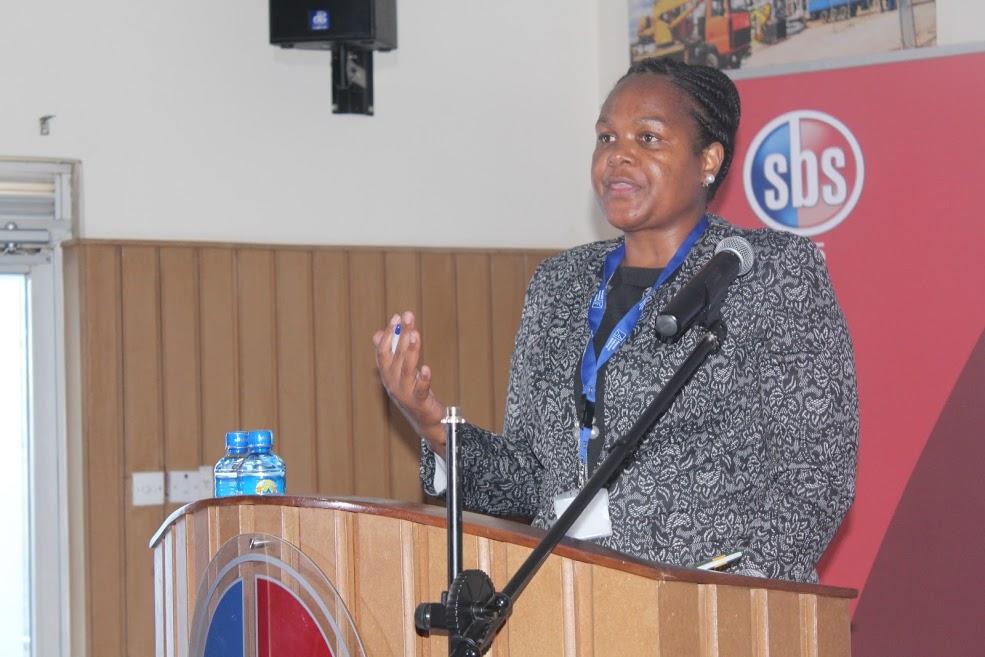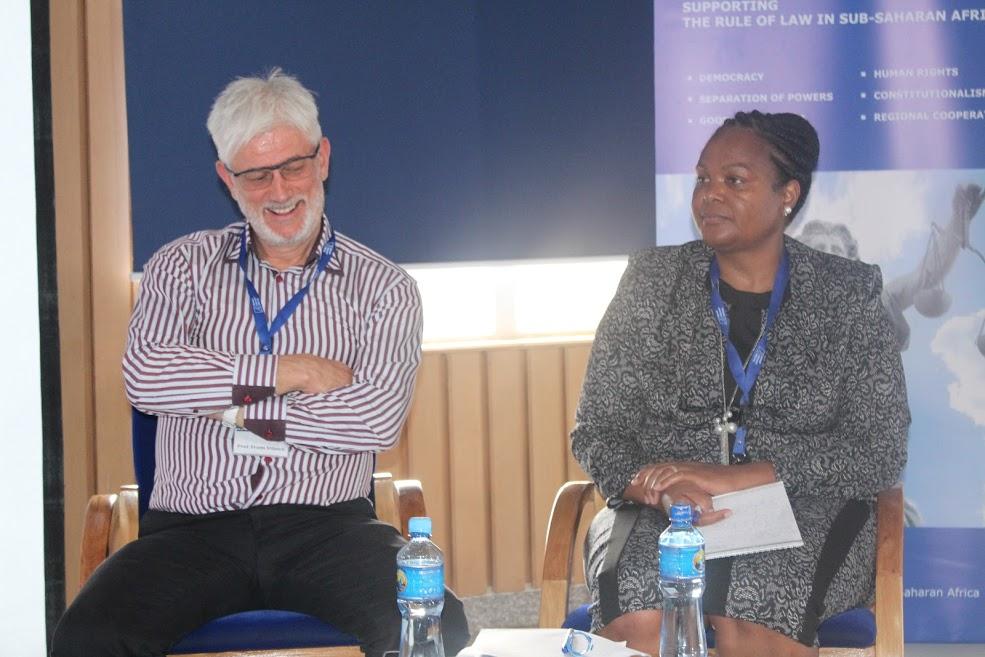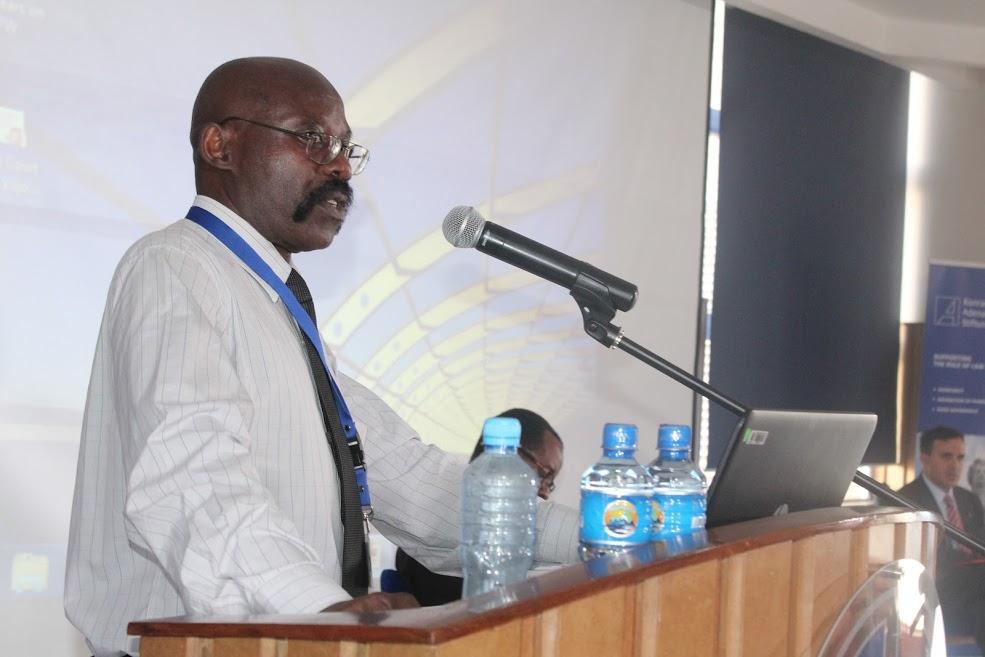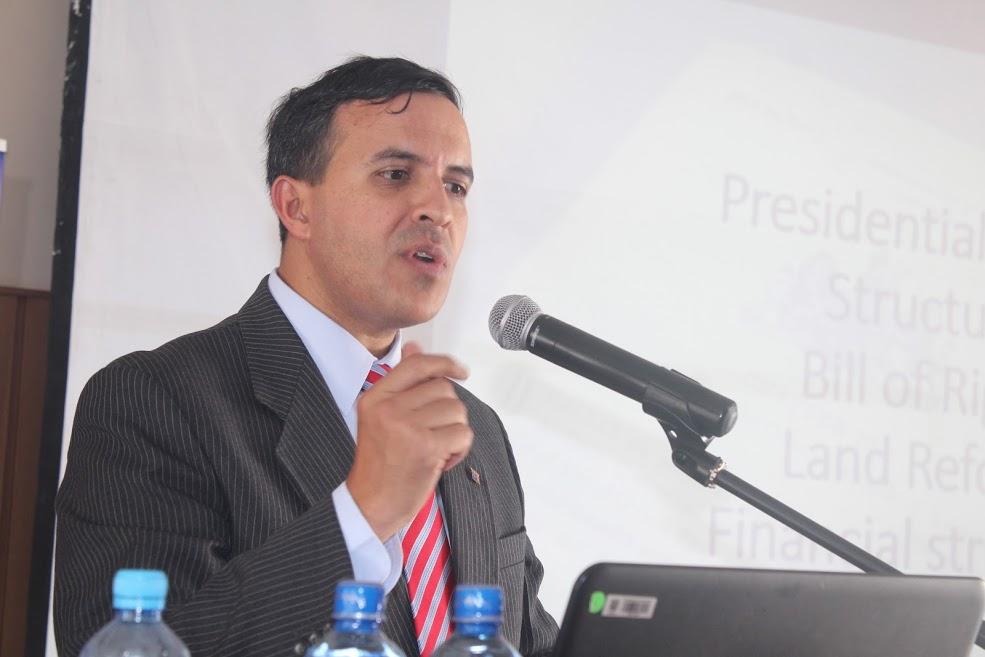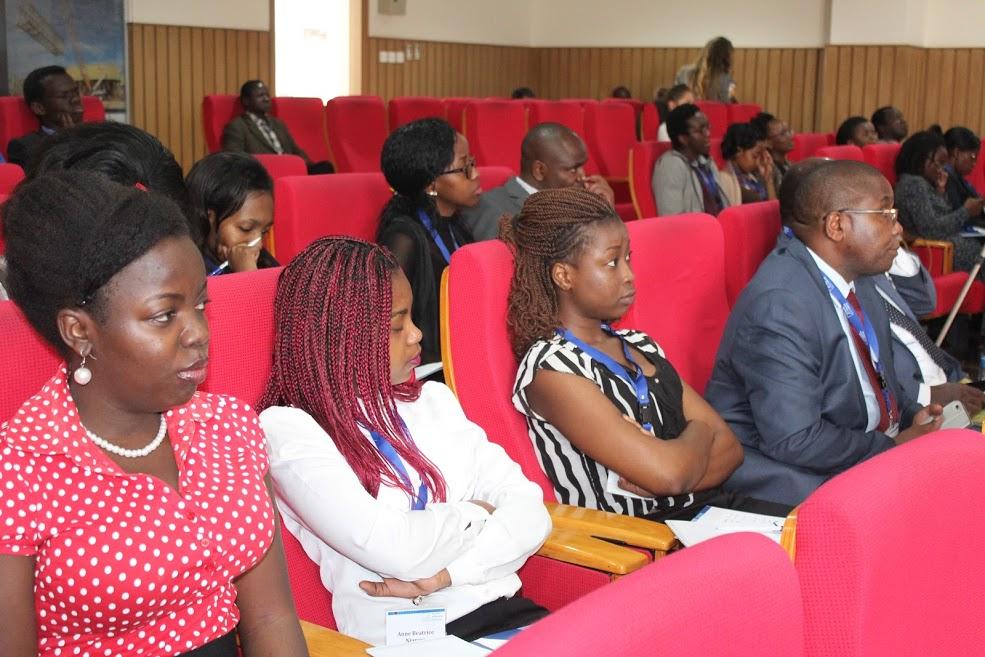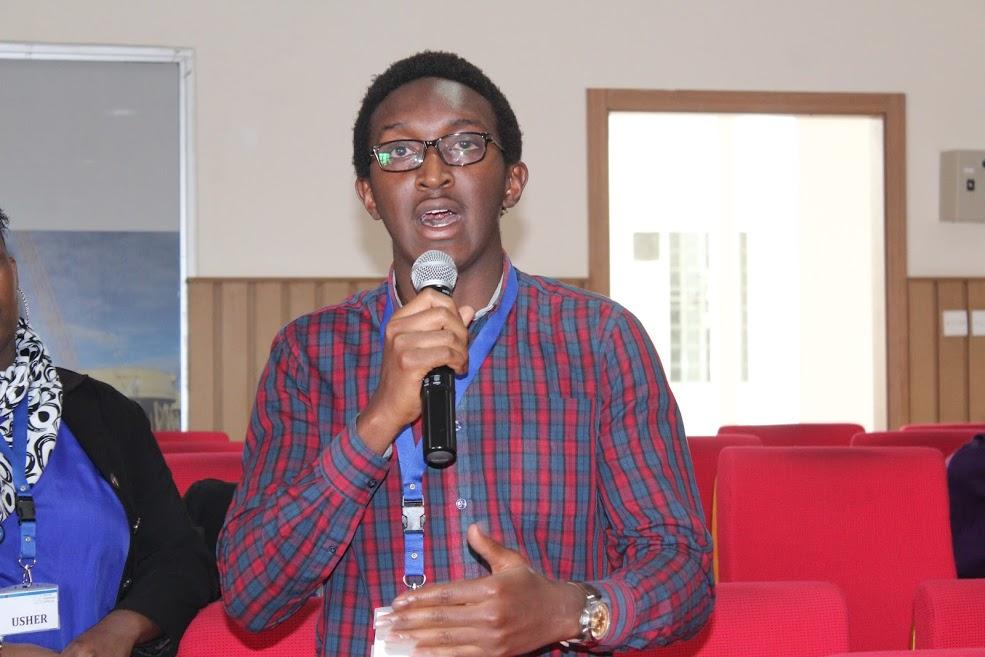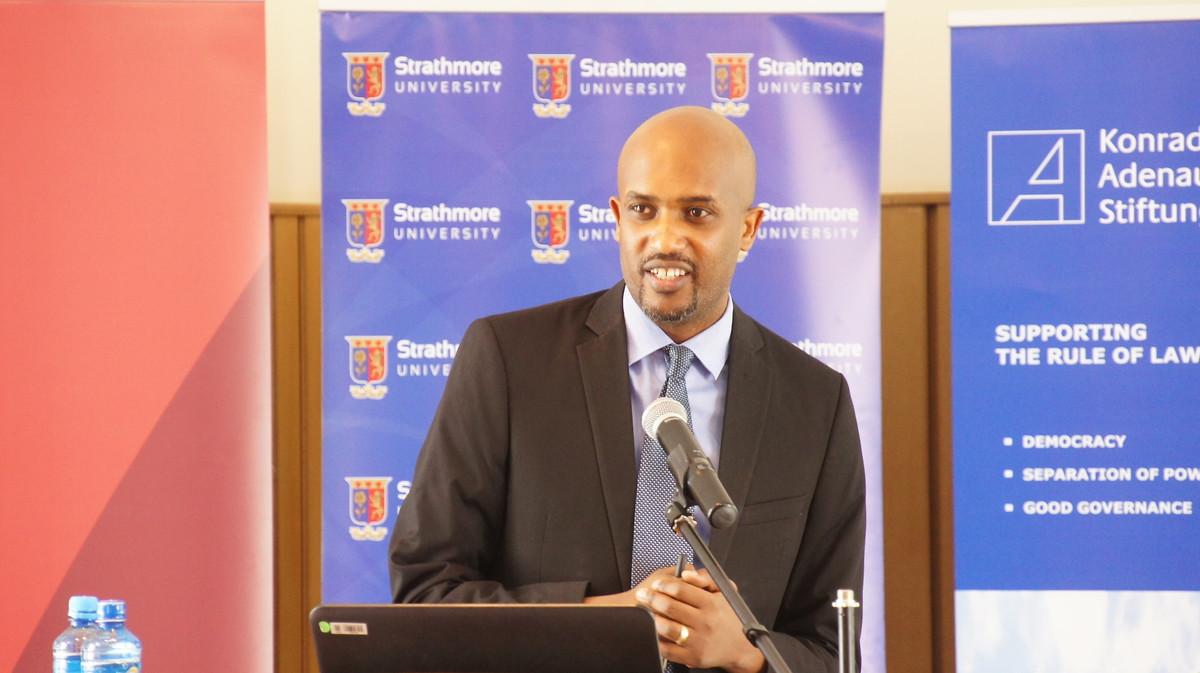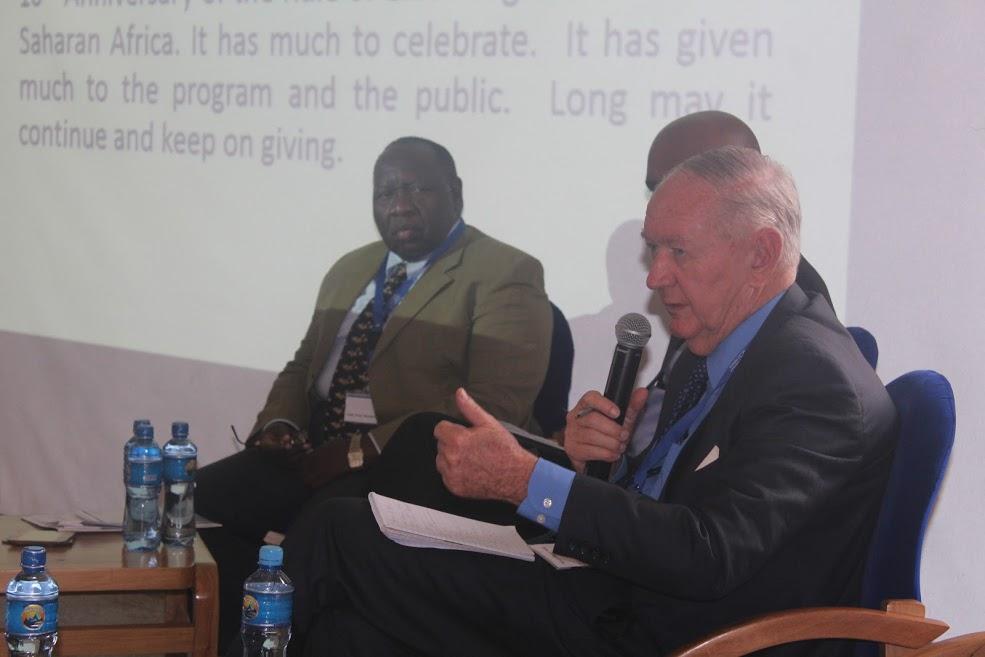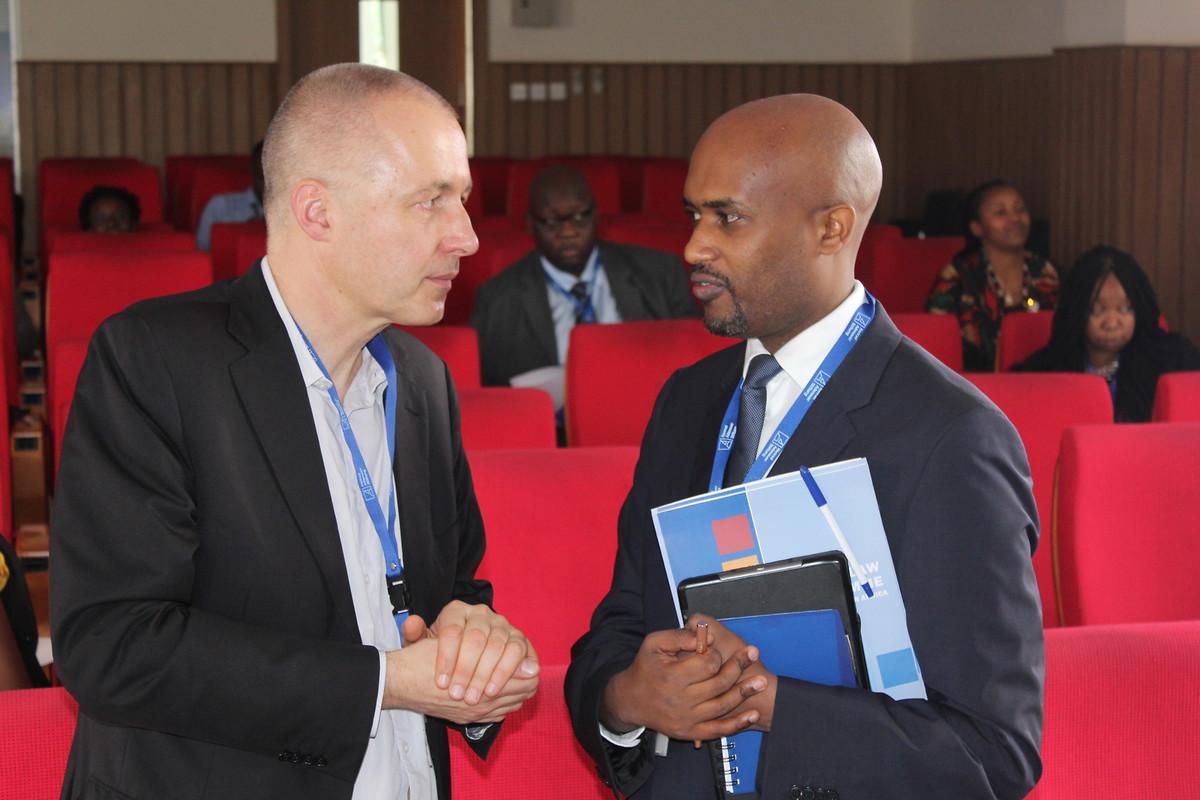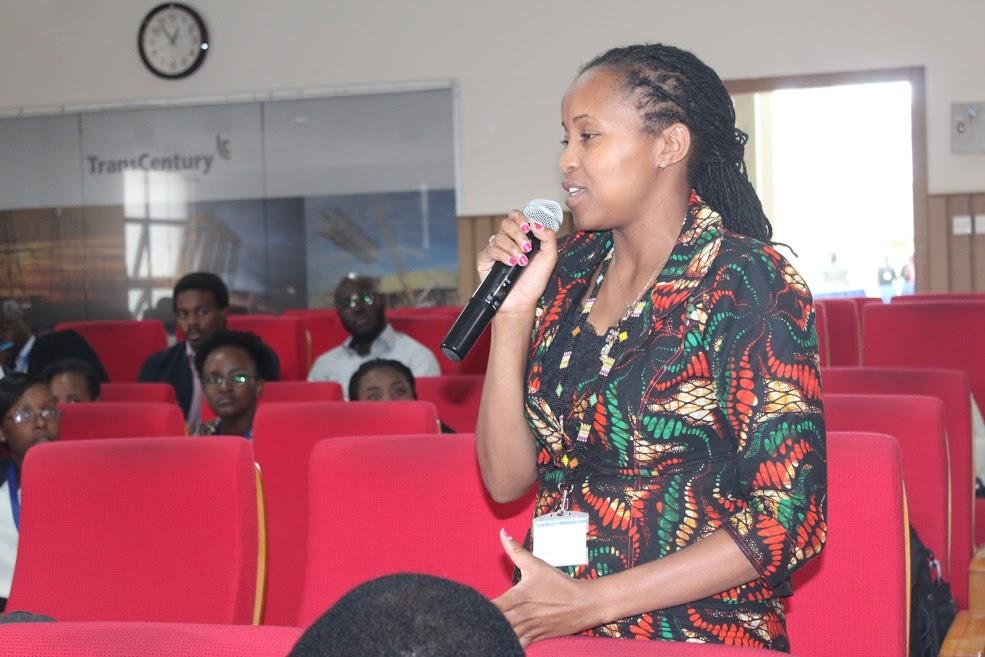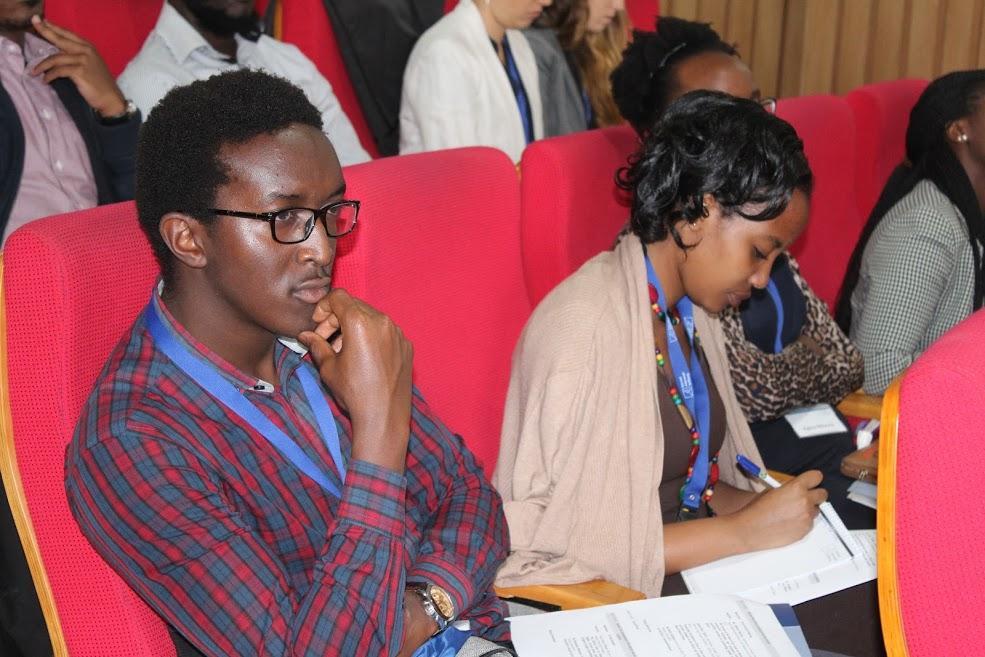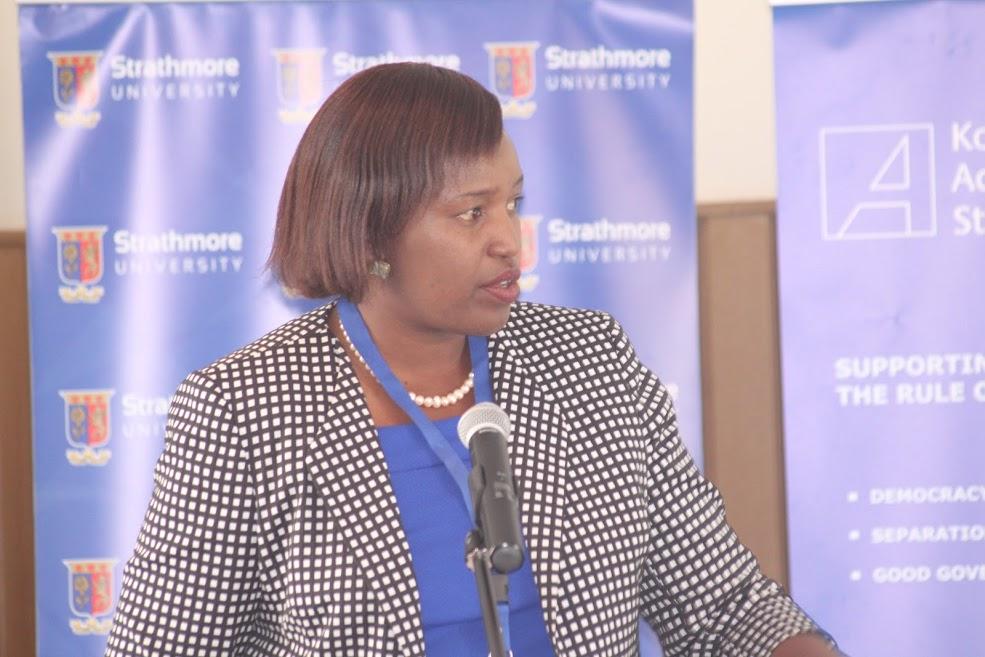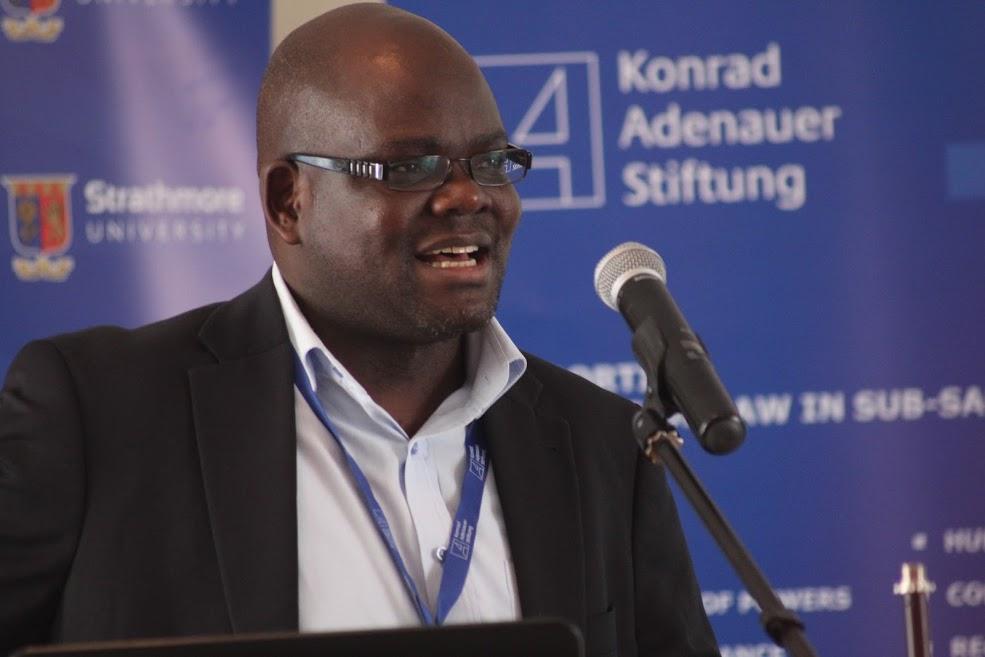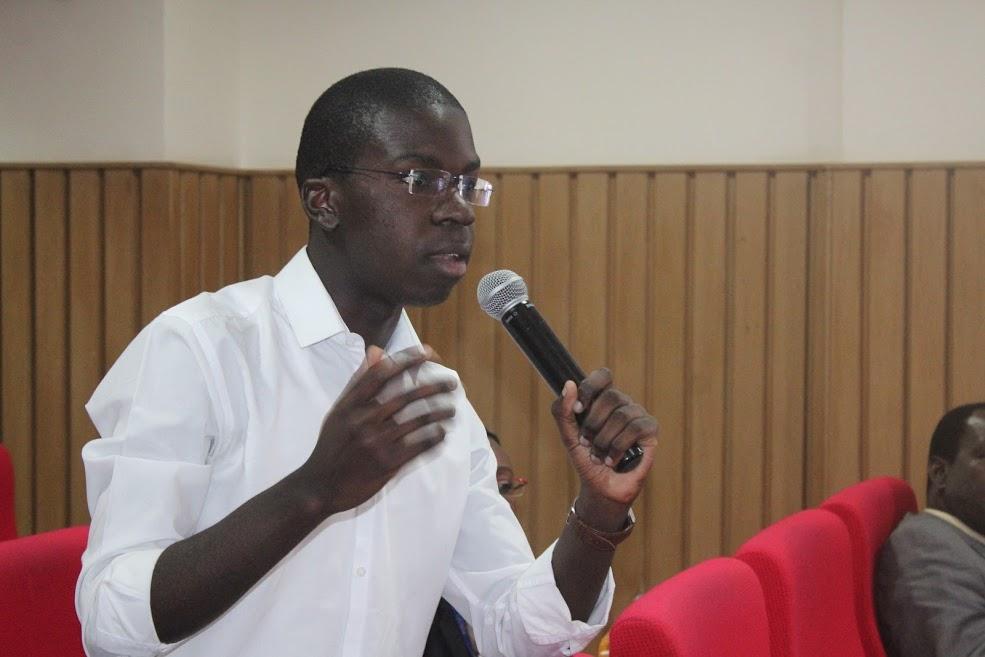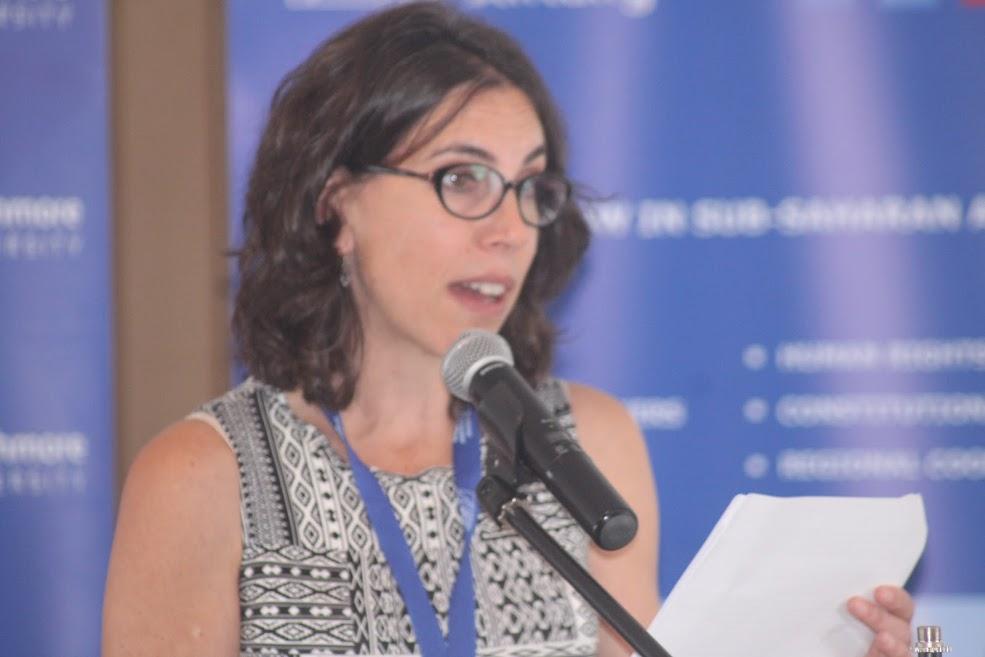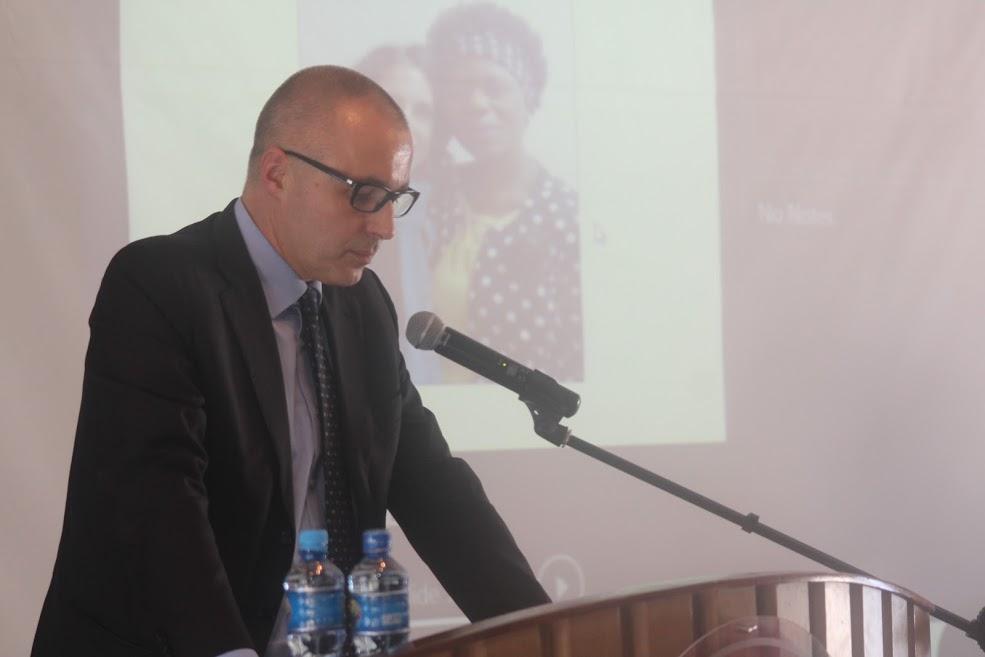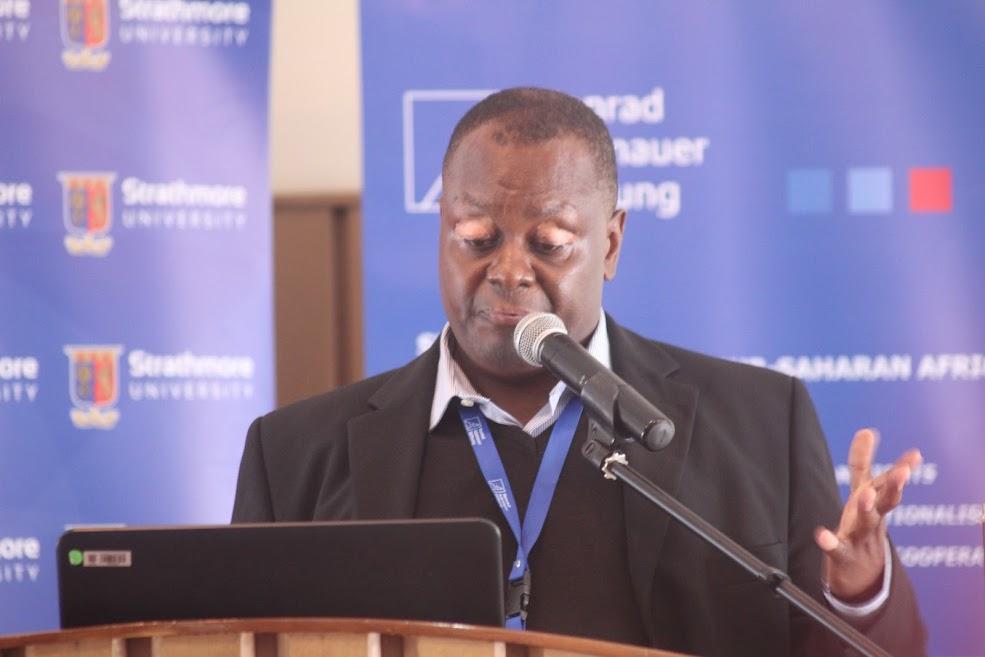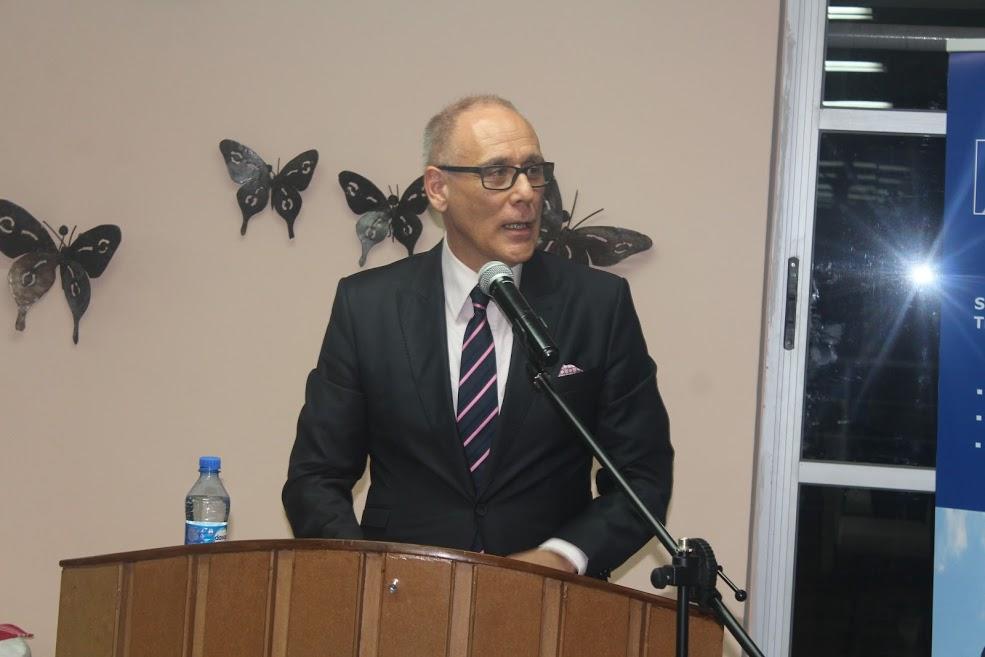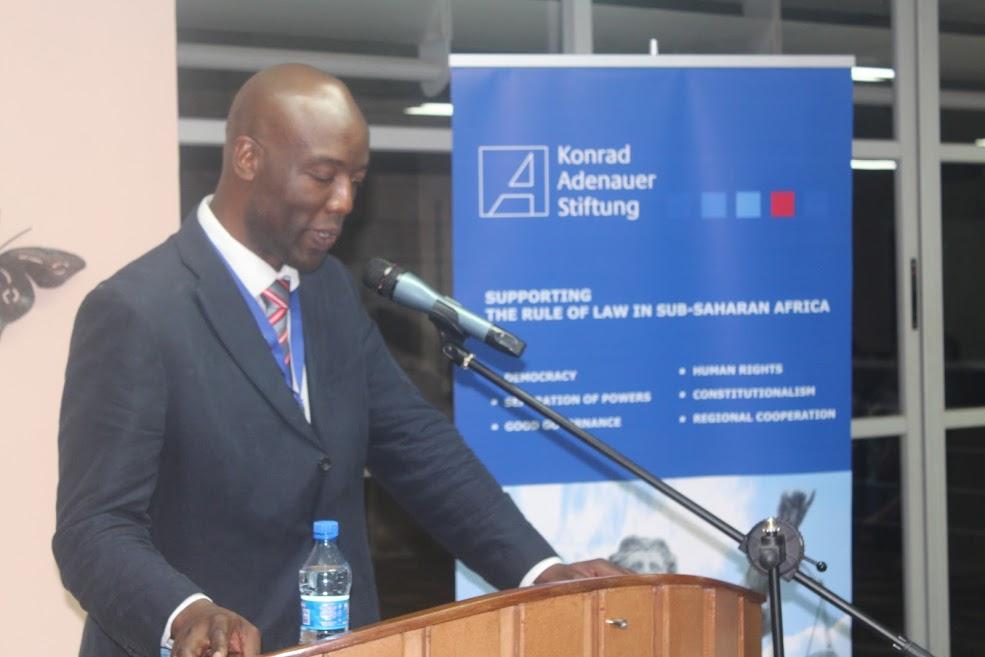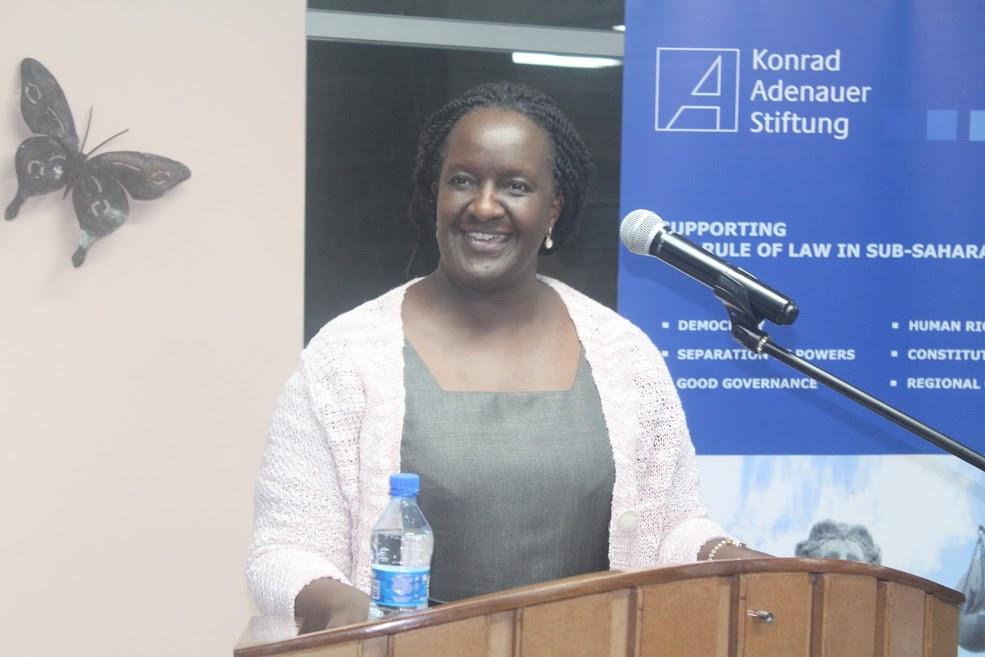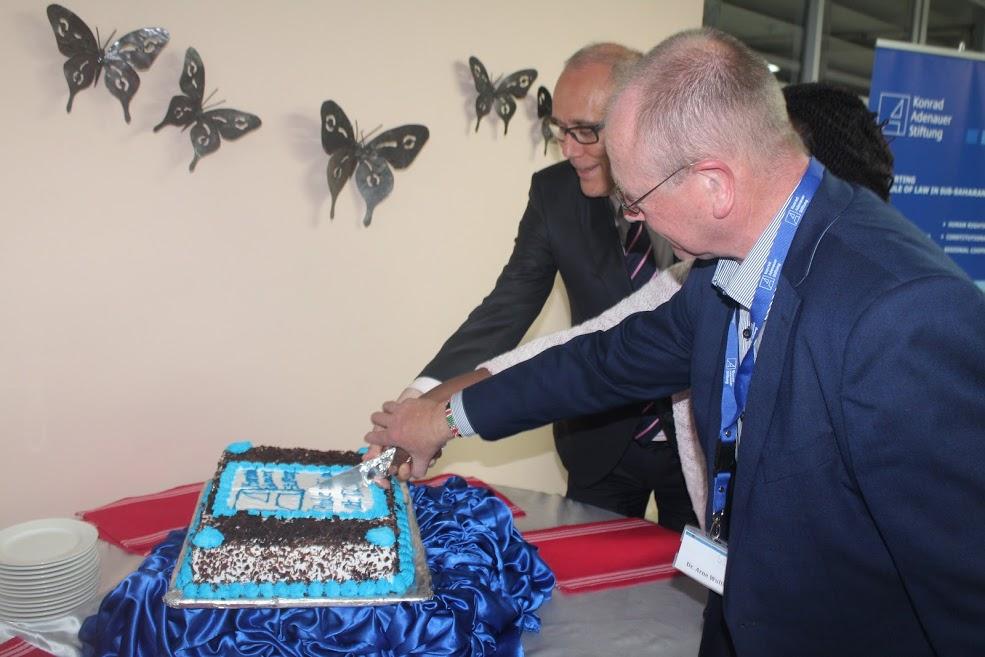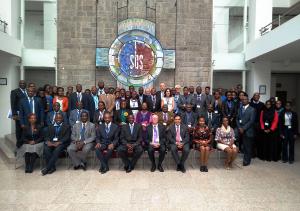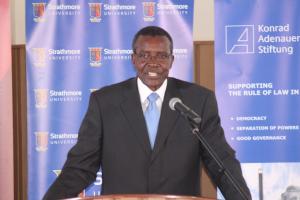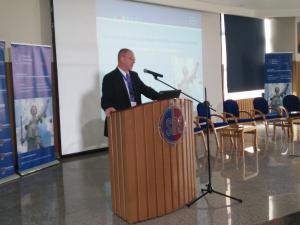Event reports
Ten years after the establishment of the Rule of Law Program for Sub-Saharan Africa, KAS had a reason to reflect on the past as a springboard to strategize for the future. The Foundation brought together various distinguished guests and long-term partners to take part in a symposium on the rule of law in Sub-Saharan Africa. They comprised of judges, legal practitioners, representatives of NGOs, scholars, media, students and politicians from all over Sub-Saharan Africa to share their experiences, review the current trends and reflect on the future. Students of Strathmore University had the chance of posing questions and discussing their perspectives with reputable panellists.
The symposium commenced with a walk through the ten years by Mr. Peter Wendoh where its objectives, activities and impact were shared. It was noted that the program has consistently increased its strategic partners and activities on the continent since inception. Its main areas of engagement include the independence of the judiciary, constitution-making and constitutionalism, human rights, separation of powers, good governance and democracy as well as regional integration.
Opening Speech by the Hon. Chief Justice of Kenya: ‘Access to justice for every citizen priority during my tenure!’
The key note address given by Chief Justice and President of the Supreme Court of the Republic of Kenya Hon. Justice David Maraga explained the relationship between the state and the citizens by using Kenya as a case study. He observed that after 50 years of independence, the state was still captured by private interests, financial blackmails and institutional excesses. He pointed out that Machiavelli’s definition of the democratic state as the rule over the people by the people for the people had increasingly become perverted to the rule by the elite over the elite for the elite. He enumerated some of the positive steps that had been taken in the recent past in a bid to overcome some the challenges. The 2010 Constitution provides a good platform in this regard. Insofar the administration of justice is concerned he pointed out the efforts being made in hiring more judicial officers and increasing the number of mobile courts in a bid to enhance access to justice in the country. The unreserved enforcement of constitutional provisions by the judiciary without fear or favour remains an important aspect towards tackling some of the fundamental challenges facing the country. He pledged to fight judicial corruption which undermines the tenets of the rule of law and delivery of justice to all. He promised to provide leadership of courage for the judiciary to protect and uphold the constitution ensuring that citizens seeking justice will obtain it in a fair way without delay and bias. In this regard, he reminded the audience that the bedrock of justice for ordinary people was the access to the courts.
Subsequently, different panels addressed some of the pertinent issues under six thematic areas namely;
1. General trends in the last decade specifically around the advancement of the international criminal law in Africa.
The panelists comprised of international criminal law experts Mr. Wilfred Nderitu; Dr. Jeanne-Mari Retief, and Ms. Emilia Siwingwa.
2. Independence of the Judiciary and Access to Justice in Africa.
The panelists comprised of Prof. Frans Viljoen who addressed the status, challenges and the future of the African Court on Human and People's Rights in light of the Malabo Protocol; and Ms Makanatsa Makonese, who assessed the prospects of restoring the SADC-Tribunal.
3. Constitution-making and constitutionalism in Africa.
The panelists comprised of Prof. Charles Fombad who reviewed the implementation of modern Constitutions in Africa; and Dr. Luis Franceschi who specifically reviewed the implementation process of the Kenyan Constitution.
4. Regional Integration.
The panelists comprised of Hon. Justice Dr. Emmanuel Ugirashebuja (Judge President – EACJ) who discussed the importance of Regional Courts in the integration process; and Hon. Eddie Cross, MP (Zimbabwe) who discussed the integration process in the SADC region.
5. Human Rights and Democracy.
The panelists comprised of Mr. Henry Maina, who reviewed Africa’s civic space vis-a-vis the fundamental liberties right to expression, association etc); and Ms. Elsy Sainna, who sddressed Women’s participation in political processes in Africa.
6. New Frontiers.
This session addressed emerging and cross-cutting areas that threaten or provide an opportunity for the advancement of the rule of law in Africa. The panelists comprised of Ms Gail Washkansky who addressed corruption; Prof. Hartmut Hamann who focused on the place and role of future defenders and implementers of the rule of law (youth) and Prof. Rev. Aidan Msafiri, who tackled the question of climate change.
In the ensuing discussions it was apparent that whereas progress had been made in some areas a lot more remained to be done. It was acknowledged that transparent and responsible leadership; empowered, engaged and active citizenry as well as strong involvement of the youth, women and other marginalised groups in democratic and governance processes were paramount to the realisation of Africa’s full potential.
The symposium concluded with a Cocktail Reception that was graced and addressed by the Deputy German Ambassador to Kenya H.E. Michael Derus and Ms Christine Agimba, the Deputy Solicitor General (for Prof. Githu Muigai, Attorney General, Republic of Kenya) as well as Dr. Arne Wulff, the Director of the Rule of Law Program for Sub-Saharan Africa.




